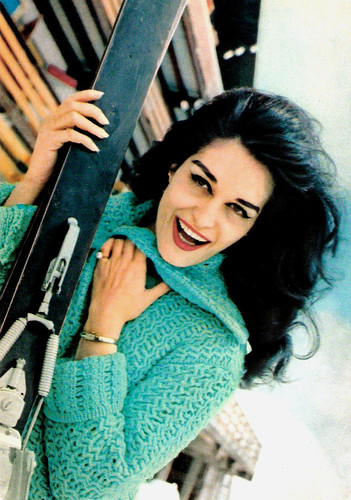
French postcard by Editions P.I., no. 1048. Photo: Noa.
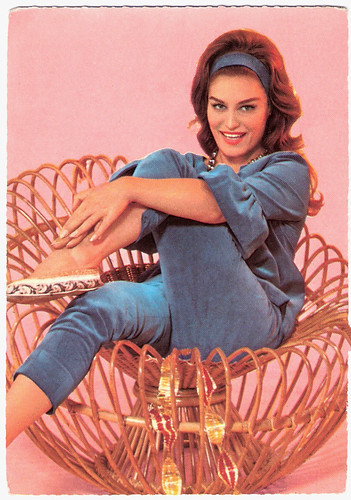
German postcard by Krüger, no. 902/183. Photo: Ariola.
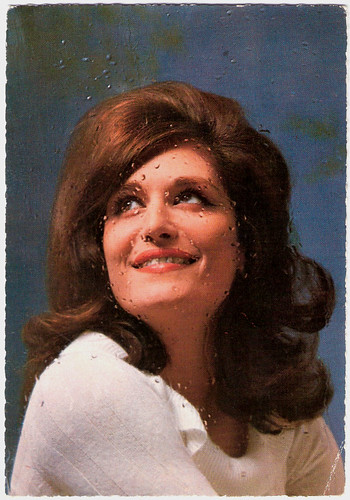
French postcard by E.D.U.G., no. 444. Photo: Barclay / Herman Léonard.
The Egyptian version of Hollywood
Iolanda Cristina Gigliotti was born in Cairo, Egypt in 1933 in a middle-class family. Her family was of Italian origin, her parents having emigrated at the turn of the century from Calabria, Italy. She was the middle child between two brothers, Orlando and Bruno, who would later in Dalida's career change his name to Orlando like his other brother and become her manager. Dalida’s father, Pietro Gigliotti, was the first violinist (primo violino) at the Cairo Opera House.
Dalida’s early life was spent in the district of Shoubra, where she attended the Scuola Tecnica Commerciale Maria Ausiliatrice, an Italian Catholic school.
In 1950, Dalida participated in the Miss Ondine beauty pageant and won the title, and shortly after began working as a model for Donna, a Cairo-based fashion house. At the age of 20, Dalida won the Miss Egypt pageant.
The doors of the Cairo film industry, the Egyptian version of Hollywood, opened wide before her. She was cast as a sultry brunette vamp in the film Sigara wa Kass/A Cigarette and a Glass (Niazi Mostafa, 1954).
She was spotted by French director Marc de Gastyne, who gave her a role in his film Le Masque de Toutankhamon/The Mask of Tutankhamen (Marc de Gastyne, 1954). Much to the reluctance of her parents, she moved to Paris on Christmas Eve of the same year to pursue a film career. It was about this time that she adopted the name Dalila, which she shortly thereafter changed to the more familiar Dalida.
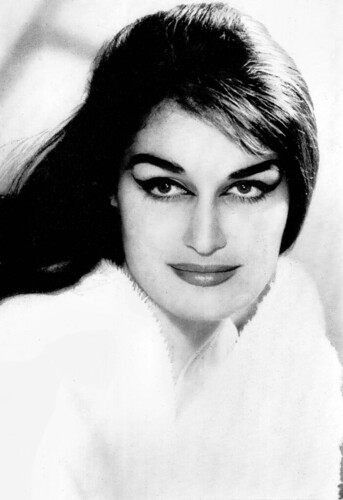
German postcard, no. 539.
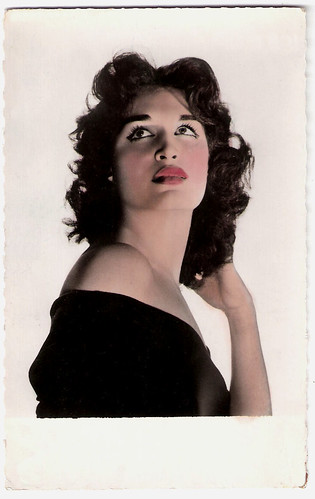
French postcard by Editions P.I., Paris, no. 905. Photo: Sam Lévin.
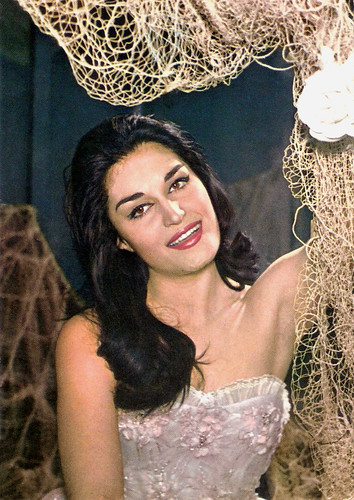
Italian postcard by Rotalfoto, Milano, no. N 122.
Ciao Ciao Bambina
Dalida’s quest for a career in the French cinema proved to be no success. Instead, she began taking singing lessons and was booked as a cabaret act on the Champs Élysées. This act proved successful. Performing the song 'Étrangère au Paradis' (Stranger in Paradise) in a variety show at the Paris Olympia Theatre, Dalida was introduced to Lucien Morisse and Eddie Barclay, who both played a considerable part in launching the starlet’s career.
Morisse was the artistic producer of the popular Radio Europe 1, and Barclay was an established record producer. After signing a recording contract with Barclay, Dalida’s debut single 'Madona' was promoted heavily by Morisse and was a moderate success.
However, the release of 'Bambino' in 1956 would prove to be even more triumphant - it spent 46 weeks in the French top ten and remains one of the biggest-selling singles in French history, and for its sales, which exceeded 300,000 copies. Dalida was awarded her first gold disc in 1957.
In the same year, she would also support Charles Aznavour at the Olympia. The follow-up single to Bambino, the exotic-sounding Gondolier was also a great success, as were other early releases such as 'Come Prima' (Tu Me Donnes), 'Ciao Ciao Bambina', and a cover of The Drifters’ 'Save the Last Dance For Me', 'Garde-Moi la Dernière Danse'.
Dalida would perform and record in more than 10 languages including French, Italian, Arabic, German, Spanish, English, Dutch, Japanese, Hebrew, and Greek. She collected 19 international number-one hit singles to her name, spanning over forty years. Worldwide sales of her music are estimated at over 130 million, establishing her as one of the most noteworthy multilingual recording artists of the twentieth century.
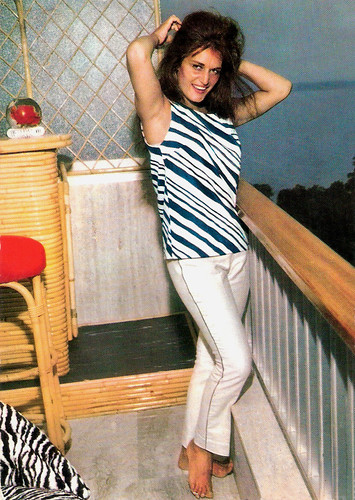
French postcard by Editions P.I., no. 1108. Photo: Kasparian.
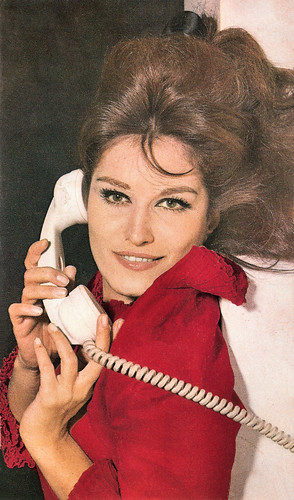
French postcard by E.D.U.G., presented by Corvisart, no. 293. Photo: Herman Leonard.
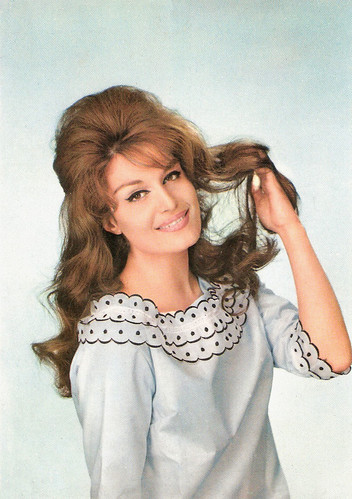
French postcard by E.D.U.G., no. 148. Photo: Sam Lévin.
Gigi l’Amoroso
Dalida incidentally appeared in such French films as Brigade des mœurs (Maurice Boutel, 1958), Rapt au deuxième bureau/Operation Abduction (Jean Stelli, 1958) and Che femmina... e che dollari!/Parlez-moi d'amour (Giorgio Simonelli, 1960) with Jacques Sernas.
She toured extensively through Europe, Egypt and the United States from 1958 through the early 1960s, and Dalida soon became well-known throughout Europe. However, her tour of America was less successful and fame eluded her in English-speaking markets. In 1961, Dalida performed a month of shows at the Olympia, with each selling out completely. Shortly afterwards she embarked upon a tour of Hong Kong and Vietnam. Throughout the 1960s the singer would frequently perform sell-out shows at the Olympia, and international dates became more frequent.
She also starred in films like L'inconnue de Hong Kong/Stranger from Hong-Kong (Jacques Poitrenaud, 1963) opposite Serge Gainsbourg, and Menage all'italiana/Menage Italian Style (Franco Indovina, 1968) with Ugo Tognazzi. In December 1968, she was awarded the Médaille de la Présidence de la République by Général de Gaulle, the only person from the music industry to have received this accolade. The early 1970s became a transitional period for the singer, highlighted by some of her most successful singles. After gaining a keen interest in academia in the mid-1960s she chose to sing songs with more profound lyrics.
In 1973, a French version of the Italian song Paroles Paroles, originally performed by Mina, was recorded by Dalida and her close friend Alain Delon. The song became a big hit and was the number-one single in France and Japan. The follow-up, Il Venait d’Avoir Dix-Huit Ans, reached number one in nine countries and sold three and a half million copies in Germany.
Gigi l’Amoroso, released in 1974, would actually perform even better in the charts than its predecessor, reaching number one in 12 countries. Touring would follow this period of unprecedented sales, with Dalida performing in Japan, Canada and Germany. In February 1975, French music critics presented the singer with the prestigious Prix de l'Académie du Disque Français.
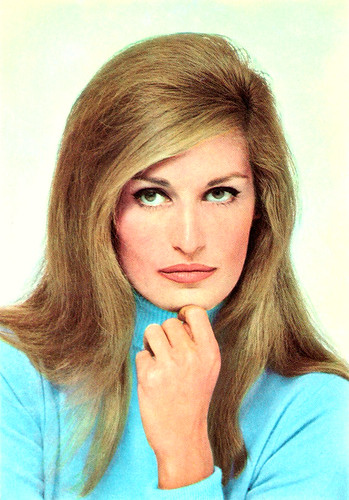
Italian postcard. Photo: RCA.

French postcard by E.D.U.G., no. 207. Photo: Sam Lévin / Disques Barclay.
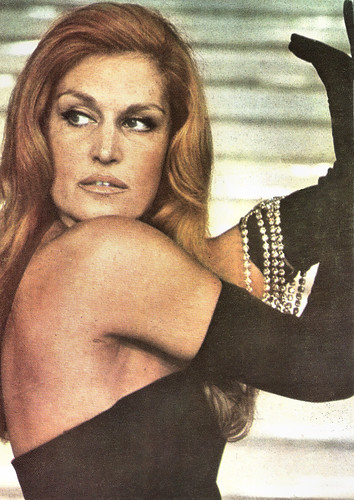
Romanian postcard by Casa Filmului Acin.
Overdose of barbiturates
1976 saw another career reinvention for Dalida; releasing what is widely regarded as the first French disco single, 'J’attendrai'. Around the same time, the popularity of the variety show in France was soaring, and Dalida made many television appearances during this period, not only in France but across Europe. One of her films was Comme sur des roulettes/As Easy as Pie (Nina Companéez, 1977). She had hits with the Arabic song 'Salma ya Salama' and with 'Génération ‘78', a disco-fused combination of her biggest hit singles to date. It also became the first French single to be accompanied by a video clip. During this disco period, Dalida would earn a gay audience, a following which is still maintained today.
In November, Dalida performed a Broadway-themed show at Carnegie Hall in New York, choreographed by Lester Wilson, who created the dance routines for John Travolta in the previous year’s cinema smash Saturday Night Fever (John Badham, 1977). 1981 marked the release of Rio do Brasil, and several dates were played at the Olympia, emulating her successful 1980 tour. On the night of her first performance, she became the first singer in the world to be awarded with a diamond disc, in recognition of her record sales which at that point in her career had exceeded 86 million.
Her last album of completely new recordings was' Le visage de l'amour' (1986). Dalida underwent two major ophthalmic operations in 1985, forcing her to put her career on hiatus. In 1986, she played the role of a young grandmother in the French-Egyptian film Al-yawm al-Sadis/Le sixième jour/The Sixth Day (Youssef Chahine, 1986), for which she received a favourable critical response.
Her last live performance, took place in Ankara, Turkey, in 1987. Despite enormous career success, Dalida’s private life was marred by a series of failed relationships and personal problems. Her first husband, Lucien Morisse, committed suicide several years after her divorce. Two of her lovers, Luigi Tenco and Richard Chanfray also took their own lives.
On 3 May 1987 Dalida died as a result of an overdose of barbiturates, leaving a suicide note reading "Life has become unbearable ... Forgive me." Dalida was buried in Cimetière de Montmartre (Montmartre Cemetery), Paris, and a life-size statue of her was erected outside her tomb. In 2005, her life was documented in the two-part TV film Dalida (Joyce Buñuel, 2005), with Sabrina Ferilli and Christophe Lambert.
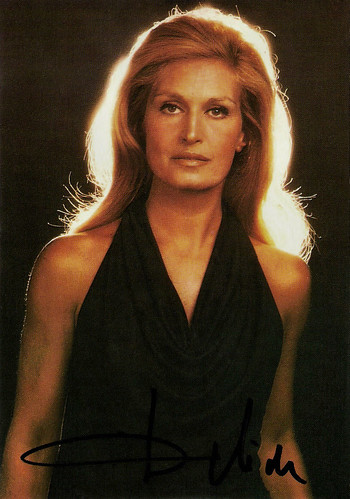
French postcard by Edition Lyna, Paris, no. 2017. Photo: A. Marouani.
Dalida sings Gondolier. Source: Andreideathboy (YouTube).
Sources: RFI Musique (French - page now defunct), Wikipedia and IMDb.
This post was last updated on 15 November 2023.
No comments:
Post a Comment